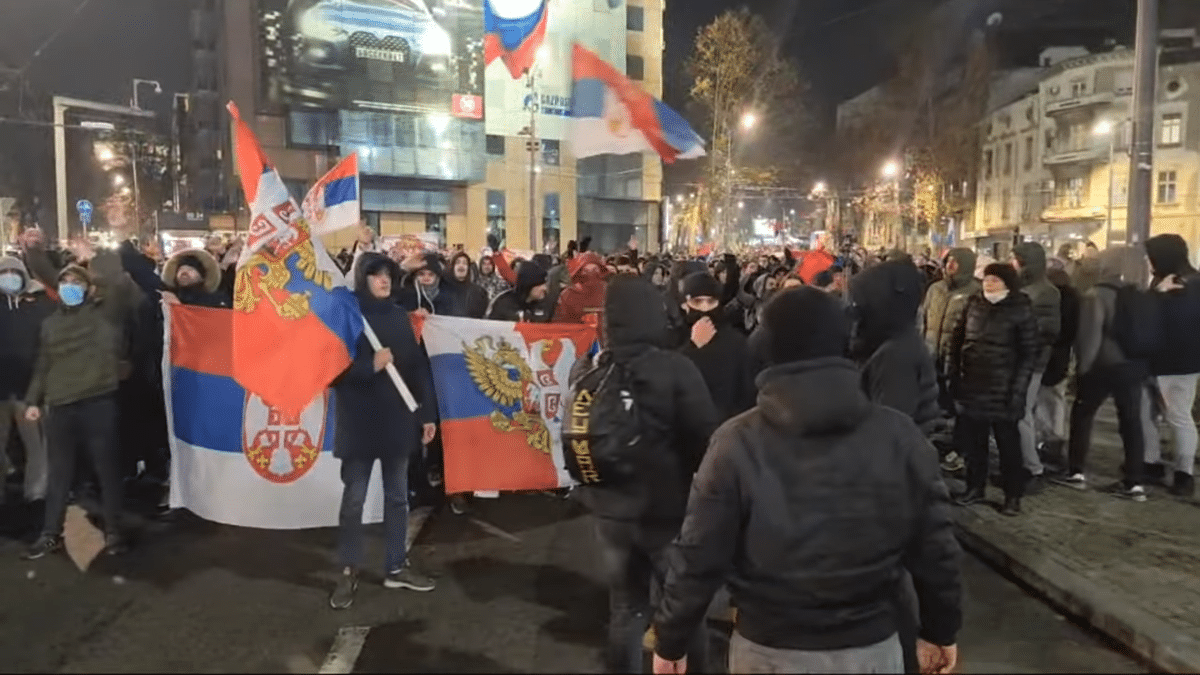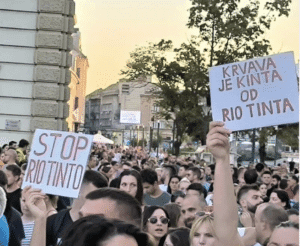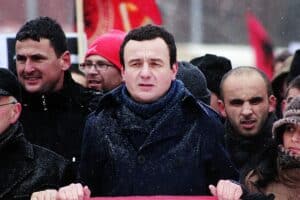Photo: Ethnic Serbs protest in Northern Kosovo Source: Wikimedia Commons
Kosovo introduces plans to phase out Dinar, to the discontent of Serbia the EU and the U.S.
A new ruling by the Kosovar Central bank to phase-out the use of the Serbian Dinar for cash payments from 1 February onwards, has led to political unrest. Both the EU and the U.S. have expressed their discontent with the ‘unconsulted’ initiative and have pleaded for more time. Quite unsurprisingly, the Serbian government indicated that it will not stop disbursing Dinars to ethnic Serbs, primarily located in Northern Kosovo. Over the past years, tensions between Serbia and Kosovo have run high on identity issues such as a license plate dispute that led to violence and protests in recent months. It is a crucial time for the EU to take a more assertive role in promoting the normalization of relations between Belgrade and Pristina.
The Euro in Kosovo
Kosovo adopted the euro as its official currency in 2002 after it had already changed from the Dinar to the German Mark in 1999. Today, the overwhelming majority of Kosovars only use euros for their daily transactions. Ethnic Serbs in the north, a group totaling more than 100.000 people, still receive Dinars from the Serbian government. The payments primarily consist of salaries, social assistance and pensions and are mostly distributed in cash. Serbia’s president Vučić has vowed to continue this practice, already advancing February payments. He even included accusations of ‘ethnic cleansing’ of Serbs in his speech addressing the issue. For the Kosovar authorities, these payments have long been considered a way of denying the statehood of Kosovo. They also consider the cash payments to facilitate illicit practices of money laundering and terrorism.
International response
The European Union (EU) was quick to urge Kosovo to extend the period for Serb minorities to adjust to the new reality. The EU considers the new rule exclusionary towards ethnic Serbs and had hoped that Kosovo had requested EU consultation on the issue. The U.S. went even further and accused Kosovar authorities of “unnecessarily raising ethnic tensions”. Several European nations also published a joint statement urging a “long period of transition”.
The quick, and forceful response by European countries and the U.S. clearly signals their desire to contain unrest in the region. Several incidents, especially in Northern Kosovo, have threatened regional stability in recent months and years – most prominently, a violent attack by Serbian militants on a monastery in the village of Banjska in September 2023. The Kosovar government considers the attack, which cost the lives of a police officer and three attackers, to be orchestrated by the Serbian government.
EU negotiations and the future role of the EU
EU-facilitated negotiations about the license-plate issue between Serbian president Vučić and Kosovo’s prime minister Kurti were marred by incidents in Northern Kosovo. Back in 2022, roadblocks and barricades were erected by Serbian nationalists when it became clear that no quick solution would be reached. Mass-resignations by public officials and public protests that resulted in violent clashes between protesters and Kosovar police and NATO Kfors soldiers further increased the need for a political solution. In late 2023, it was confirmed by Serbian officials that cars with Kosovar license plates would be able to travel freely into Serbia with Kosovar officials allowing for Serbs to do the same several days later.
Normalization of the relationship between Pristina and Belgrade is a crucial step towards EU accession of both. The EU highly values stability and peace in the Western Balkans but in the face of continuous defiance by Serbia, their approach has become broadly considered to be ineffective. If the EU wants to effectively promote normalization of relations between Serbia and Kosovo it should take a more assertive stance. Primarily, by granting Serbia funds in areas where they are trying to normalize and halting funding where they do not. The war in Ukraine has put increasing pressures on Serbia to decide where its allegiances lie. Russia’s meddling in the Western Balkans will continue to destabilize the region if the EU does not stand its ground. This is the time for the EU to show commitment and put its money where its mouth is.



